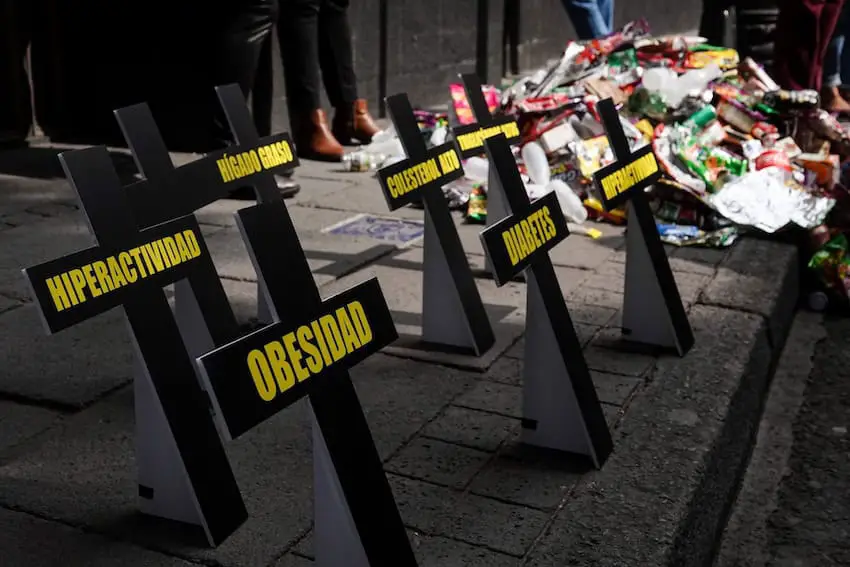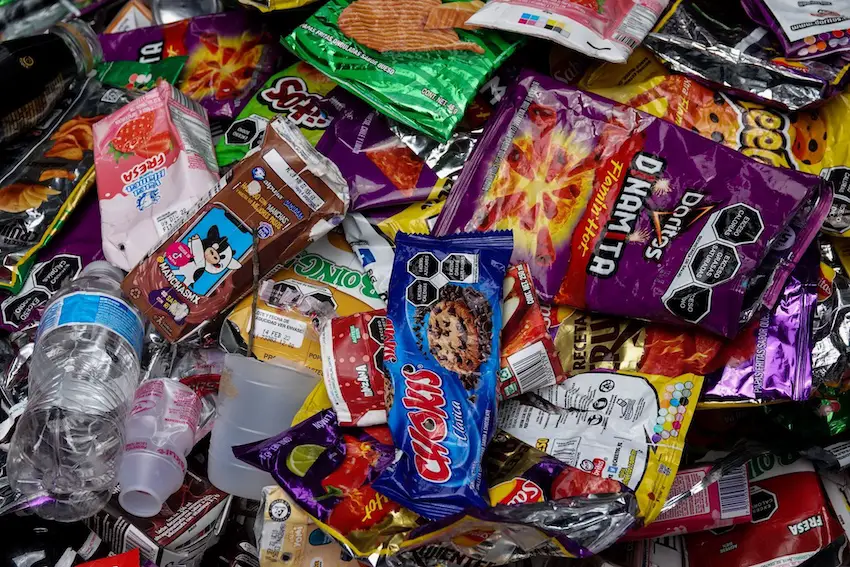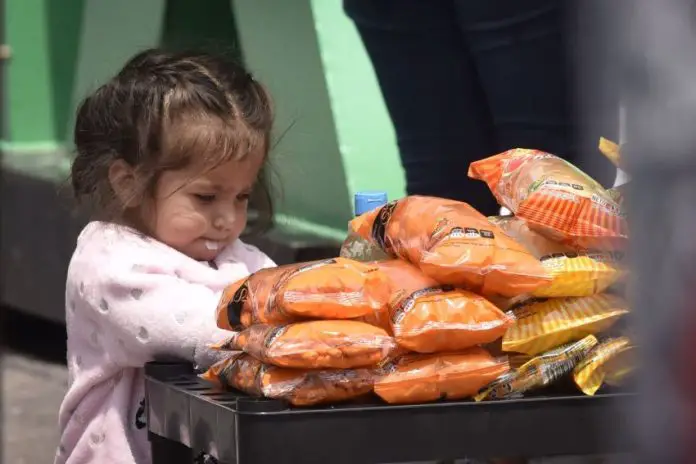The Mexican government will ban the sale of junk food — such as chips and sodas — in schools across the country beginning in March 2025, according to the Public Education Ministry (SEP).
This decision, which is part of a reform to the General Education Law, seeks to eradicate childhood obesity and promote healthier eating habits among students.

“We know that some sectors of the industry, especially those who produce this food with low nutritional value and high levels of calories — junk food as we know it — will not like [the ban],” Education Minister Mario Delgado told reporters at a press conference in Tabasco on Friday. “We are one of the countries with the world’s highest levels of childhood obesity and we can’t continue like this anymore,” he stressed.
According to the National Health Survey, 98% of schools sell junk food; 95% sell sugary drinks; 79% offer soda; 77% offer junk food for sale in the vicinity of the school and 25% allow junk food advertising.
What are the new rules for food in schools?
During her Monday morning press conference, Sheinbaum presented new regulations that were published in the Official Gazette of the Federation (DOF) on Sept. 30, aimed at ensuring nutrition and health for students in Mexico.
The foods offered at schools must comply with the following requirements:
- Foods must be of natural origin or minimally processed
- Seasonal fruits and vegetables must be offered
- For foods of animal origin, only poultry, such as chicken and turkey, is allowed and must be prepared without fat and skin
- These foods should be cooked using minimal sugar and oil
- Access to drinking water must be guaranteed, free of charge
- Caffeinated drinks are prohibited
The new rules will become effective on March 29, 2025, and will be mandatory throughout the National Education System. Schools that do not comply will be subject to fines of between 545 and 5,450 pesos.

The reform also seeks to shift children’s eating habits away from unhealthy Mexican staples, including chilaquiles, tacos de canasta and quesadillas. School cafeterias are advised not to serve these types of meals to students.
Delgado also said that the ministry would carry out an educational campaign for all parties involved, including school principals, parents and teachers, among others.
This is the third time that the federal government has attempted to ban junk food in schools.
In May 2014, the government published a set of guidelines for the sale and distribution of prepared and processed foods and beverages in schools in the DOF. While some schools have tried to enforce the guidelines in the past decade, the most recent results of the SEP’s nationwide survey suggest that they have been unsuccessful.
Childhood obesity statistics in Mexico
According to the latest results from the National Health and Nutrition Survey (ENSANUT, 2023), it is estimated that between 7 and 8% of infants (1-5 years old), 37.3% of school-age children (5–11 years old) and over 40% of adolescents (12–19 years old) are overweight or obese in Mexico. Meanwhile, 12% of children under five years of age show signs of malnutrition.
If this pattern continues, by 2030, it is estimated that 45% of adults in Mexico will be obese.
With reports from Swiss Info, El País, Reforma, La Jornada and Publimetro
